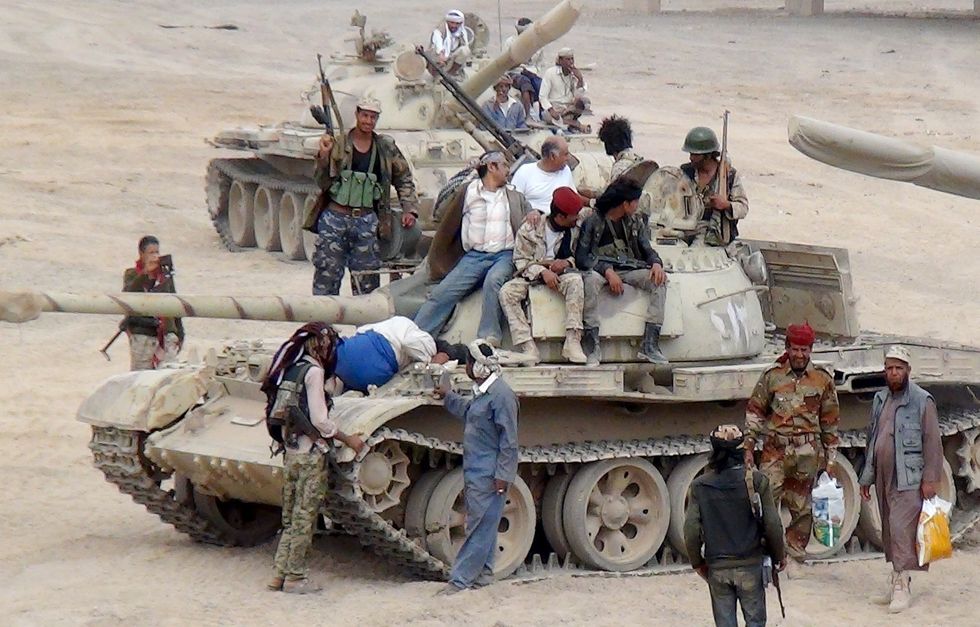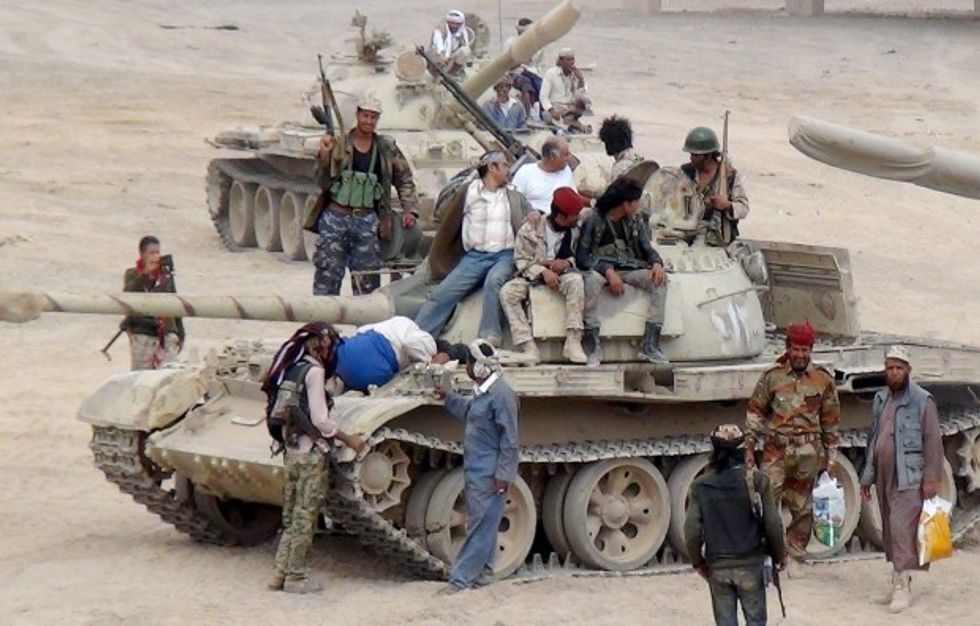
General People's Committee deploy at mechanized unit in Aden, Yemen on March 25, 2015. (Photo by Wael Shaif Thabet/Anadolu Agency/Getty Images)

It is no coincidence that at a time when the Iran-backed Houthi rebels quickly take over the nation state apparatus in Yemen that a coalition of Sunni Arab states has now intervened in the southern Arabian civil war.
What began as a local conflict many years ago and, at times, was a proxy war between the two regional powers, Iran and Saudi Arabia, has now become a regional conflict to counter rising Persian influence. Stratfor gives a good analysis of the geopolitical situation here.
The United States has had a foreign policy of balancing the regional powers, Iran and Saudi Arabia, in the Middle East for decades. Perhaps our current president knows something the thousands of policy leaders over the many years did not.

Despite claims by the regime in Tehran to have peaceful nuclear energy only, their actions and the facts show otherwise. It is quite simple, for peaceful nuclear energy Uranium is enriched to approximately 3 to 5 percent. The International Atomic Energy Agency has reported Iranian enrichment at approximately 20 percent. So, logic would tell any laymen that they are moving towards the high percentage needed to make a bomb.
At a time when President Barack Obama and Secretary of State John Kerry are desperately seeking a historic nuclear deal and negotiating from an increasingly weak position, Iran is stronger than it has been since the Persian Empire. Or, perhaps they have already made a historical error in a deal and are trying to convince the rest of the West to accept it as a defected Iranian journalist has stated.
In a region where strength and power are respected and/or feared, the Saudis cannot Saudi Arabia cannot permit extremists like Islamic State or Al Qaeda to become the strongest perceived counter to the Houthis. This will most certainly swell their ranks and further threaten the Saudis and, in turn, America. This conflict does not only threaten American national security, but world energy security as well.
The president’s policies and/or concessions have seen growing Iranian influence or control of Iraq. Their influence has surged in Lebanon, Libya, and Syria. Now we see Iran controlling Yemen via their proxies, the Houthi rebels, shipping them weapons, financing them, and reportedly flying Yemeni planes to bomb Aden. As the New York Post reports, some of these Sunni countries view Iran as a mortal enemy.
Thus, the Obama administrations shifting policies in the Middle East are causing escalated tensions and are a direct driving force of deeper geopolitical struggle between the Saudis and the Iranians. A multinational Arab military force may have some merit in terms of security in the region, but as the Iranians rise out of balance in terms of power and if they are allowed a nuclear bomb, there will be larger conflict.
It may baffle the minds of many Americans, but the administration removed Iran and another of their proxies, Hezbollah, off the United States’ terror list. This happened, despite much recent American blood on Iranian hands. Further, there are reports out of Israel and beyond that the president has declassified a report on the Israeli nuclear program, an unprecedented move to one of our closest allies, over an immature childlike squabble.
What we are seeing in Yemen is a microcosm of what may end up being the reality in the Middle East. Regional conflict.
Obama’s policies are leading Iran from behind. If the Sunni nation states’ response to Iranian intervention in Yemen is any indication of what a further imbalanced Middle East will look like, the Obama Administration should take up and lead with the French position in the nuclear talks or get out of the way and follow.
Scott Taylor is the author of Trust Betrayed; Barack Obama, Hillary Clinton, and "The Selling Out of America's National Security." He is a U.S. Navy SEAL, Iraq War veteran, and was a consultant in Yemen. He serves in the Virginia House of Delegates.
–
TheBlaze contributor channel supports an open discourse on a range of views. The opinions expressed in this channel are solely those of each individual author.